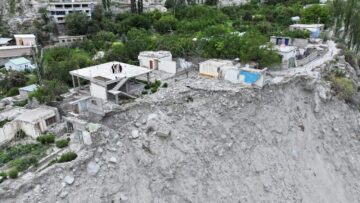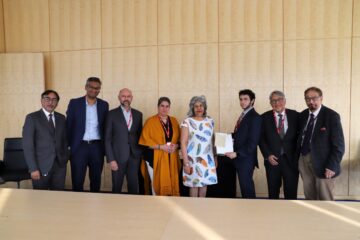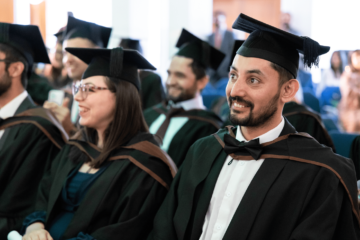The IIS recently welcomed new students onto the Secondary Teacher Education Programme (STEP) and the Graduate Programme in Islamic Studies and Humanities (GPISH). Arriving from across the globe, thirty-five students joined STEP from Australia, Canada, India, Kenya, Madagascar, Pakistan, Tajikistan, Uganda and the USA, whilst eleven students from Canada, India, Pakistan, Syria, Tajikistan, and the USA began GPISH.
Dr Laila Halani, Head of Graduate Studies at the IIS, expressed her aspirations for the incoming students:
“These forty six students from ten countries will spend the next two years in the intellectually and culturally vibrant environment of the IIS, UCL Institute of Education (for STEP) and London. They will develop and mature as scholars, intellectuals and teachers who will inevitably go through a personal transformation and will hopefully also enhance the lives of those they work with. As this journey takes them to uncharted and challenging territories, they will have the opportunity to learn as much from each other as from the scholars and educators who will guide them in their journey.”
STEP is a joint initiative between the IIS and the UCL Institute of Education, which trains and prepares teachers to deliver the Institute’s Secondary Curriculum – which has been specifically developed for the religious education of Ismaili Muslim children. Having qualified as secondary-level teachers, the graduates will go on to undertake teaching positions with the Ismaili Tariqah and Religious Education Boards in their home countries.
Naseer Ahmadi, who joins this year’s STEP cohort from Canada, commented:
“In this age of reason and fast-paced communication, our Ismaili youth need to obtain a thorough education on religion in order to develop a profound understanding of Islam and its Ismaili tariqah. I was a volunteer teacher in a religious education centre and enjoyed teaching the RE curriculum to our youth. However, I realised that if I want to teach effectively I need to develop my pedagogic skills and further my knowledge. Hence, STEP came into play. STEP is not merely a career for me, but a path to enhance a learned and strong community that builds on our traditions and values.”
GPISH is a three-year graduate programme, the first two years act as preparation for a research degree and a stepping stone to a variety of career opportunities. Past graduates have pursued careers in a wide range of fields, including academia, media, education and development. New students will have the unique opportunity to benefit from the new GPISH curriculum which was designed to ensure that GPISH continues to be a cutting edge programme in the field of Islamic Studies and Humanities, while remaining true to the original vision that guided its launch twenty years ago. Introduced in September 2014, the new curriculum benefits from recent scholarship and methodological approaches, particularly in the field of Shi‘i and Ismaili studies. In keeping with the interdisciplinary nature of the programme, there are thematic and methodological integrations between the modules.
Saima Khakwani from Pakistan, who joins this year’s GPISH cohort, said:
“GPISH is a one-of-a-kind experience. The programme offers a new perspective on religion by providing a platform to explore my faith in greater depth and develop a deeper understanding of Islam in the contemporary world. The mix of students from a diverse background is commendable, as we all have the opportunity to learn from each other and discuss the on-going concerns affecting Muslims, especially IsmailisAdherents of a branch of Shi’i Islam that considers Ismail, the eldest son of the Shi’i Imam Jaʿfar al-Ṣādiq (d. 765), as his successor., around the globe.”






